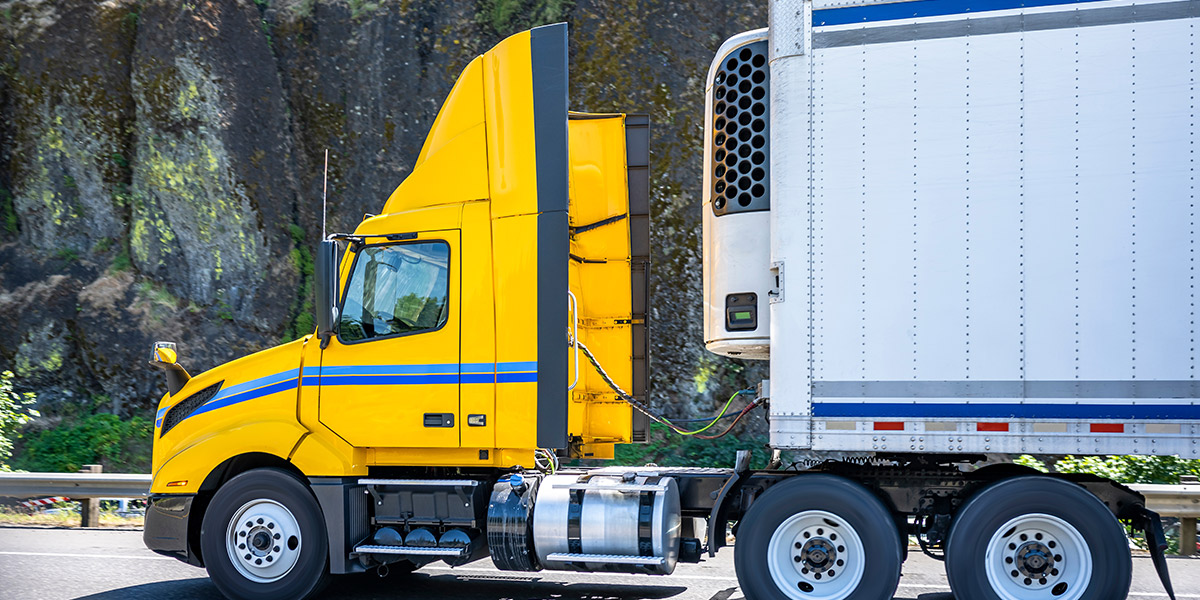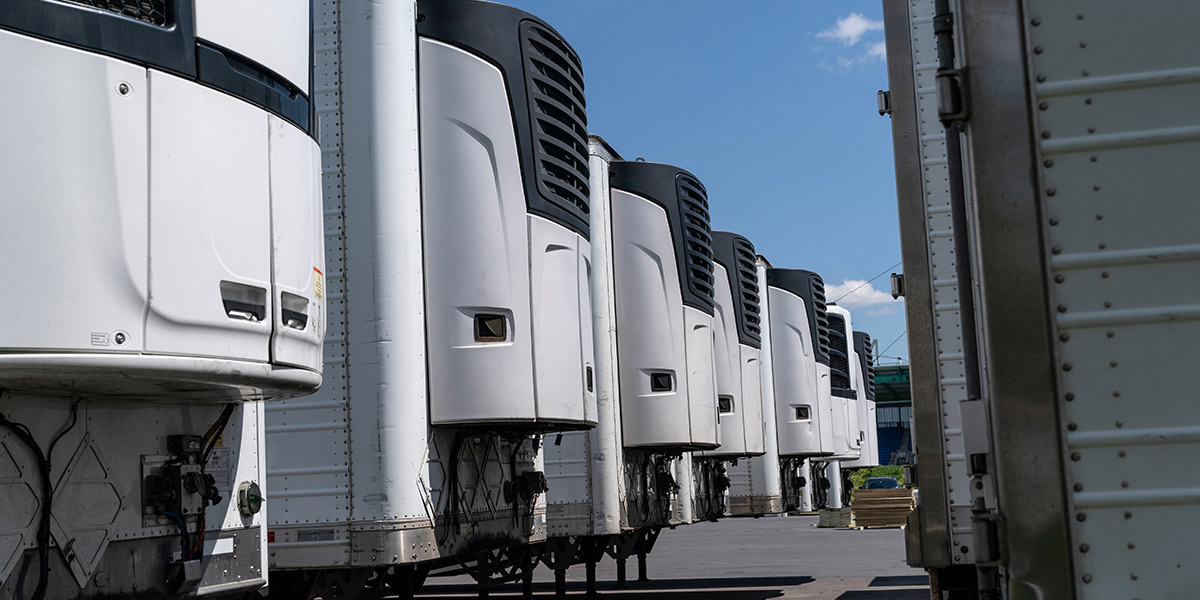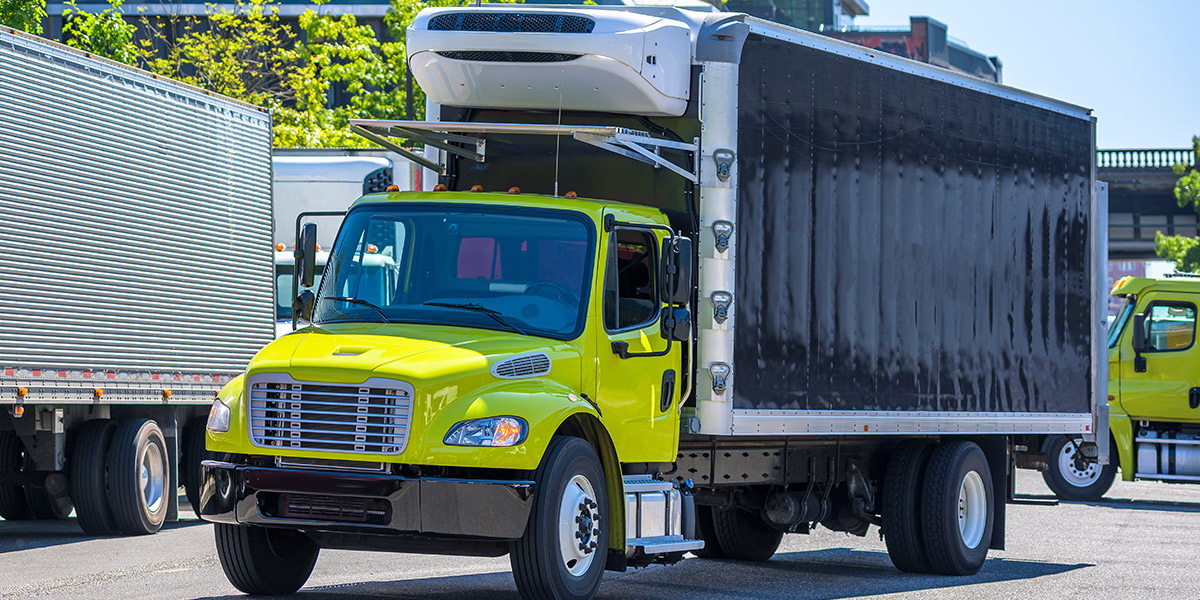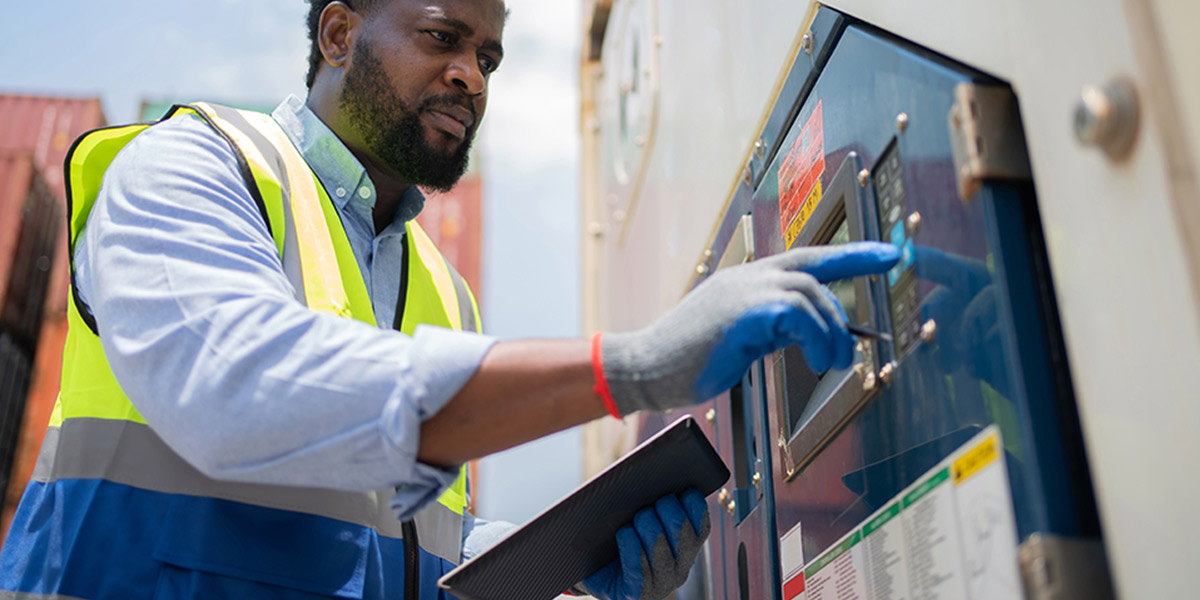When it comes to maintaining safe food temperatures, the greatest risks are when trailers are left unattended.
Working 24/7 isn’t an option for employees in any role. We all need time to rest and recharge if we are to be effective during the hours we do work.
Unfortunately, when it comes to food safety, there can be no “off hours” for temperature tracking. The misalignment between working hours and the need for round-the-clock temperature monitoring represents a serious risk for fleet operators who must remain FSMA compliant and ensure the food they are transporting remains at a safe temperature at all times.
Reefers may sit unattended at terminals, depots, or other locations for hours at a time or even over entire weekends in yards – periods of time when no one is monitoring or managing food temperatures or ensuring that they remain at a safe level. During these periods, traditionally, fleet operators have had to rely on their equipment to operate properly and on any individuals on site – if there is anyone present at all– to act in a manner that doesn’t jeopardize food safety.
While, of course, it’s unrealistic and cost-prohibitive for reefers to be attended to every minute of the day and night, there are steps fleet operators can – and should – take to make sure the food they are transporting stays safe.
Assess the risk. Addressing vulnerable points in the cold chain begins with a thorough understanding of where the food you are transporting is located at all times, understanding when, exactly, it is left unattended, and taking stock of the risk to safe food temperatures during transport. Once you have this knowledge, you can then determine how to address these risks, through technology, changes to processes or procedures, or by focusing on behavior – or, most likely, a combination of all of these.
Install temperature monitoring. Modern temperature tracking technology can be implemented in reefers, shipping containers, and other environments, and connected to a telematics platform to provide a powerful view of temperature status across your entire fleet.
These solutions include easy-to-install temperature monitoring units that continually track ambient temperatures, making it possible to, at any time, see that food is being kept at a safe temperature. This ability to track temperature at any time, day or night, provides an invaluable way to monitor food temperature even when no one is physically present – significantly reducing the risks associated with leaving food unattended in reefers, containers, or other units.
Educate your people. While telematics-enabled temperature tracking technology can send alerts when food is at an unsafe temperature, or at risk of being at an unsafe temperature, you also need your drivers and other employees to do their part. Because they may not realize how their decisions and behaviors put food at risk, educating them about what they should do and why they should do it, is a good way to ensure they take responsibility for compliance and safety.
A Powerful Safety Net
The combination of knowledge, technology, and education represents a powerful safety net for the food you are transporting – even when people are enjoying some time off and your reefers are left unattended. While your people enjoy their weekends, you can still be covered to do what’s required to uphold your responsibility to maintain compliance and to keep food safe.










